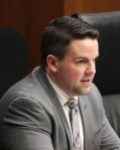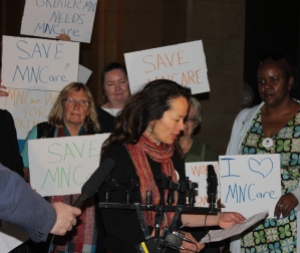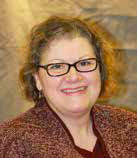Practice Alert: Should nurses be filling the Pyxis?
By Mathew Keller RN JD, MNA Nurse Practice & Policy Specialist
In a cost-cutting move, many Minnesota hospitals are asking registered nurses to take on more pharmacy duties. Where there may have once been pharmacy staff available 24/7 to answer questions, compound pharmaceuticals, and dispense medications, many nurses are finding that such coverage is now limited to 9-5 with an outsourced pharmacist in another city (or state) available by telephone after hours to answer questions and certify prescriptions. This can lead to potentially dangerous situations for patients as well as nurses’ licenses when nurses are asked to dispense and/or compound medications in the absence of a pharmacist.
… Read more about: Practice Alert: Should nurses be filling the Pyxis? »






